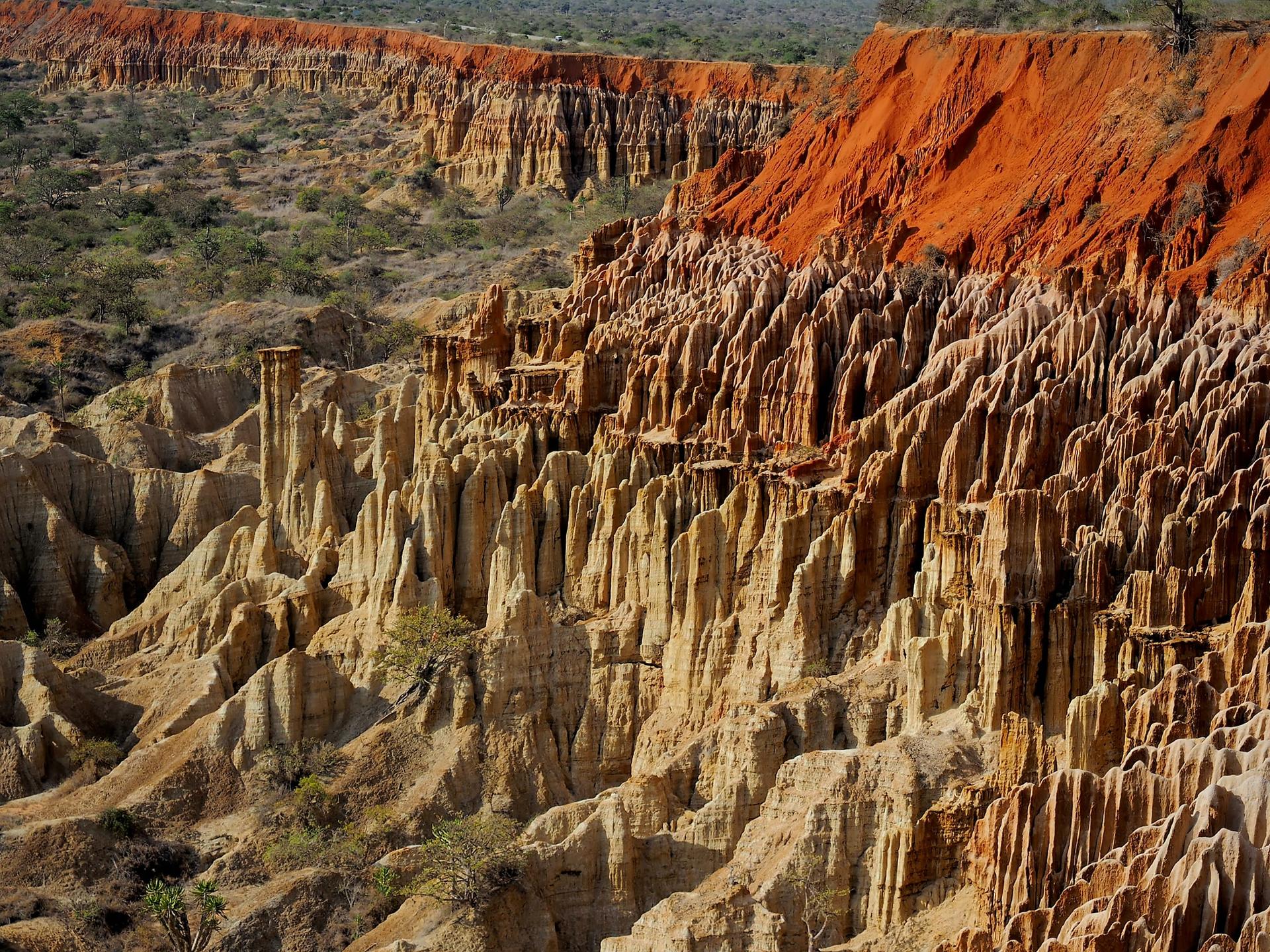Angola🇦🇴

Angola, located on the Atlantic coast of Southern Africa, is the seventh largest country on the African continent. It’s bordered by Namibia to the south, the Democratic Republic of Congo to the north, and Zambia to the east. Known for its significant oil reserves, Angola also has rich traditions in music and dance, specifically the hypnotic rhythms of semba and kizomba. Despite war-torn history, Angola offers fascinating landscapes from the arid desert of Namibe to the rainforests of Cabinda. Luanda, the capital, with its impressive coastline and rich colonial past, has ubiquitous Portuguese influence. Travelers also enjoy glimpses of wildlife at the Kissama National Park and hiking in the Tunda Vala Fissure.
⚠️Things you should avoid⚠️
- Avoid using public transportation at night due to higher crime risks.
- Avoid remote areas, particularly after dark.
- Avoid any political demonstrations or large public gatherings due to the risk of violence.
- Avoid taking photographs of government buildings and military installations. It’s prohibited and could lead to detention.
- Avoid going to beaches alone. They are generally unsafe for swimming due to strong currents.
- Avoid drinking tap water, always opt for bottled water or water that has been boiled or disinfected.
- Avoid openly displaying wealth and valuable possessions to deter thieves.
- Avoid discussing sensitive political topics. Criticism of the government can be deemed offensive.
- Avoid travel outside main cities without a reliable local guide and prior arrangements for safe accommodation.
- Avoid traveling without comprehensive travel insurance that covers medical evacuation.
Overall
5
Crime 🔫
3
Unfortunately, street crime and robbery are prevalent in parts of Angola. In urban areas like Luanda and Huambo, there's a significant risk of armed robberies and carjacking. Furthermore, lack of lighting and security infrastructure exacerbates safety concerns.
Terrorism 💣
7
Angola has been largely immune to international terrorism, with no prominent incidents reported in the recent years. However, separatist insurgencies by the Front for the Liberation of Enclave of Cabinda pose a modest internal security risk.
War ⚔️
7
Angola suffered a protracted civil war from 1975 to 2002, causing severe hardships. While the country has experienced relative peace since then, occasional low-level conflicts persist with native ethnic groups.
Natural Disasters 🌊
6
Natural disasters in Angola include flooding and droughts, primarily affecting rural areas. Floods in 2021 notably caused damage in Luanda and six provinces, displacing thousands. However, there’s a moderate risk of earthquakes.
Medical Care 🏥
4
While significant strides have been made in healthcare, basic medical services are still inadequate, especially outside major cities. Medical facilities in Luanda offer satisfactory care but are limited in capabilities and resources.
Tap Water Quality 💧
4
Drinking tap water isn't recommended in Angola due to inadequate water treatment. Boiling or using disinfectant tablets, or preferably buying bottled water are safer options.
Disease Burden 🤒
4
Malaria, yellow fever, cholera, typhoid, tuberculosis, and HIV/AIDS are prevalent. The worst cholera outbreak in 2006 resulted in thousands of deaths.
Corruption 💸
2
Corruption is rampant in Angola, permeating many levels of society and government. Despite anti-corruption campaigns, progress has been slow, with high-profile cases like the 'Luanda Leaks' demonstrating deep-rooted issues.
Safety for Women ♀️
5
Women travelers should exercise caution, particularly at night. Harassment is reasonably common, especially in crowded public places. It's advised to dress modestly to respect local customs.
Safety for Queer People 👬
6
Angola decriminalized homosexuality in 2019, a notable advancement for LGBTQ+ rights in Africa. However, societal attitudes can vary, and discretion is advised.
Censorship 📺
5
Angola treads a middle ground on censorship. Media operates in a partially restricted environment, with occasional reports of journalists facing pressure or prosecution for criticism of the government.
Public Transportation 🚌
6
Public transportation services are unreliable and can be unsafe due to poorly maintained vehicles. Minibus services or 'candongueiros' are common, but driving standards are low, with high road accident rates.
Other useful information
🔒 How safe is it?
While Angola has much to offer, it’s important to remain alert and cautious about personal safety. Petty crime such as theft and robbery is a concern, particularly in urban centres. Women and LGBTQ+ travelers in particular should remain aware of local customs and ensure they prioritize their safety.
🏰 Embassies in this Country
Several foreign embassies are located in the capital, Luanda, including those of the United States, United Kingdom, France, Brazil, Russia, Spain, Germany, China, and India.
💉 Recommended Vaccinations
It's recommended to check the vaccinations needed which usually include shots for Diphtheria; Hepatitis A; Tetanus; Typhoid; Polio; and a certificate for Yellow Fever is required for entry.
🐍 Dangerous Animals
Dangerous animals in Angola include lions, cheetahs, elephants, and crocodiles found in national parks and rural areas. Always maintain a safe distance and consult with local guides when venturing into wildlife areas.
🛂 Visa Requirements
Most nationalities require a visa to enter Angola. Visas must be obtained in advance from an Angolan embassy or consulate.
💲 Currency
The currency is the Angolan Kwanza, and major credit cards are accepted in larger hotels and restaurants in Luanda.
💳 Credit Card Acceptance
Credit card acceptance is moderate, with acceptance mostly at hotels, high-end restaurants and some markets in urban areas.
🧑🏭 Is it possible to work and travel in this country?
Work and travel opportunities are limited due to economic and security conditions. However, teaching English and volunteering are viable options.
💵 Cost of Travel and Living
Angola is one of Africa's most expensive countries. Food, accommodation and travel costs can be significantly higher compared to other African countries. Costs can be especially high in Luanda.